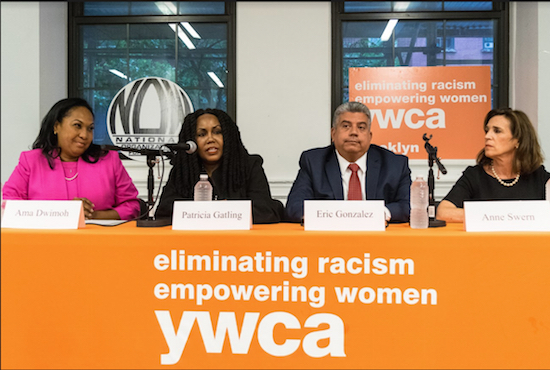Brooklyn DA candidates discuss women’s issues at organized forum

The National Organization for Women-New York (NOW) hosted a forum with four of the six candidates for Brooklyn district attorney to discuss issues related to women at the YWCA Brooklyn in Boerum Hill on Thursday, Aug. 4.
Candidates Ama Dwimoh, Patricia Gatling, Acting District Attorney Eric Gonzalez and Anne Swern took part in the discussion that touched on many of the usual topics, but took an in-depth look at women’s issues including the complications of prosecuting rape and domestic violence cases.

Brooklyn Boro
View MoreNew York City’s most populous borough, Brooklyn, is home to nearly 2.6 million residents. If Brooklyn were an independent city it would be the fourth largest city in the United States. While Brooklyn has become the epitome of ‘cool and hip’ in recent years, for those that were born here, raised families here and improved communities over the years, Brooklyn has never been ‘uncool’.